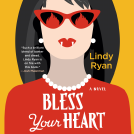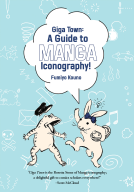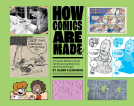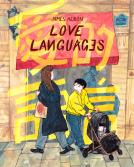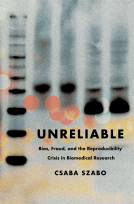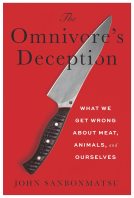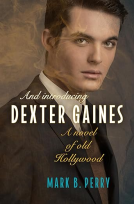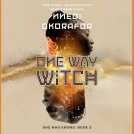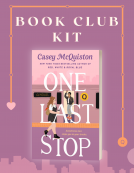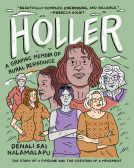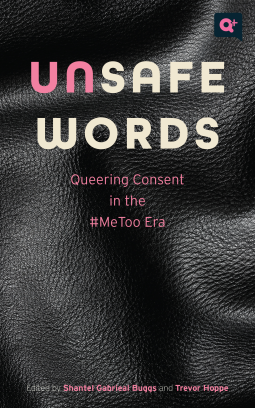
Unsafe Words
Queering Consent in the #MeToo Era
by edited by Shantel Gabrieal Buggs and Trevor Hoppe
This title was previously available on NetGalley and is now archived.
Send NetGalley books directly to your Kindle or Kindle app
1
To read on a Kindle or Kindle app, please add kindle@netgalley.com as an approved email address to receive files in your Amazon account. Click here for step-by-step instructions.
2
Also find your Kindle email address within your Amazon account, and enter it here.
Pub Date Feb 10 2023 | Archive Date Mar 14 2023
Talking about this book? Use #UnsafeWords #NetGalley. More hashtag tips!
Description
Queer people may not have invented sex, but queers have long been pioneers in imagining new ways to have it. Yet their voices have been largely absent from the #MeToo conversation.
What can queer people learn from the #MeToo conversation? And what can queer communities teach the rest of the world about ethical sex?
This provocative book brings together academics, activists, artists, and sex workers to tackle challenging questions about sex, power, consent, and harm. While responding to the need for sex to be consensual and mutually pleasurable, these chapter authors resist the heteronormative assumptions, class norms, and racial privilege underlying much #MeToo discourse.
The essays reveal the tools that queer communities themselves have developed to practice ethical sex—from the sex worker negotiating with her client to the gay man having anonymous sex in the back room. At the same time, they explore how queer communities might better prevent and respond to sexual violence without recourse to a police force that is frequently racist, homophobic, and transphobic.
Telling a queerer side of the #MeToo story, Unsafe Words dares to challenge dogmatic assumptions about sex and consent while developing tools and language to promote more ethical and more pleasurable sex for everyone.
Available Editions
| EDITION | Other Format |
| ISBN | 9781978825406 |
| PRICE | $22.95 (USD) |
| PAGES | 216 |
Featured Reviews
 Ashton W, Educator
Ashton W, Educator
The honest, comprehensive sexual education on consent that I never received.
This an incredibly powerful collection of essays that detail the challenges of defining consent and the dangers of allowing the state to be in charge of our definitions. This book leans into the messiness and complexity of sexual relationships, especially queer ones, and offers incredibly necessary commentary and insight for the current moment. I highly recommend it as an academic text for those in the WGSS field, and also as a book for people who want to learn more about what consent looks like in practice (not just in theory).
What a fascinating and enlightening read. This book gave me much to chew on and is exactly the kind of thing I'm likely to reference in my own conversations with friends and community members.
This book tackles the issue of sexual consent from the perspective of various people who have navigated sexual scenarios that don't fit into the narrative for sex that arose as the ideal during the #MeToo movement (one of a monogamous cis man and cis woman having sex with vocally enthusiastic consent on both sides), arguing that this view on sex and consent is limited and harmful in scope because it leaves unheard stories from people to whom these situations are either not applicable or not desired.
It argues that the simple divide of "yes" or "no" to sexual acts is not as clear-cut as people wish it to be due to the system of complex power dynamics that shape our society -- and that queer people specifically can offer insight into what consent means (and when it applies) more so than the mainstream precisely because they operate outside of society's normal sexual constraints. It also argues that our society's systems in and of themselves, including the ones meant to address the topic of consent and punish sexual offenders, have fundamental flaws to them.
I won't run through each essay individually (there total thirteen, and all are worth reading) but will mention a few of the ones I found most interesting:
Consent in the Dark by Alexander Cheves
Chaves speaks of how his own experiences as a sexual active and promiscuous gay man are fundamentally incompatible with an enthusiastic consent model. He touches on a variety of scenarios and situations in which consent is either assumed waved or done in a non-verbal fashion. He speaks of how his own normal notions of "yes" and "no" don't always match with how he feels during and after sex -- and claims the very notion that people always know themselves and what they want to be faulty, particularly in states of heightened emotion.
The Straight Rules Don't Apply: Lesbian Sexual Ethics by Jane Ward
Ward discusses the ways in which sexual pleasure is tightly tied to gender by our society regardless of the individuals involved and that, because it is set apart from this dynamic, lesbian sex (even when with roles faultily assumed by non-lesbians to match het society's roles like butch/femme) operates under different rules and assumptions: "Much is possible when patriarchy is not the context in which women are being fucked."
My Firsts: On Gaysian Sexual Ethics by James McMaster
McMaster talks about his experiences as a gay Asian man growing up in a culture that prioritizes whiteness and straightness and how the intersection between queerness and race can matter in ways that are difficult to quantify: "Consider this: I'm at Elixir and another gaysian wraps his arms around me. I don't consent to this, but they seem tipsy, friendly, and harmless enough so I giggle and wiggle away. That same night, someone -- I don't see who -- grabs my ass. This act in a straight bar might cross a line, but does it here? Does the race of the grabber matter? Does the fact that I was more flattered than offended make it okay?"
Was I a Teenage Sexual Predator? by Mark S. King
King talks about how he, as a 14-year-old teenager, had sex with adults often double his age because at the time he found it easier than getting boys his own age to do things with him. He talks of how he feels he gave full consent even when he wasn't aware of or thoughtful to the possible consequences. He speaks of how when therapists and other tells him he was sexually abused that he feels abandoned by them because they don't seem to accept his own thoughts and feelings on the matter, leaving him to find his own ways to cope. "I am still puzzled by it all, still unsure whether I belong in the group of adventurers or with the abused. I can't seem to locate my own feelings. I have no judgement or anger or regret or shame. I don't feel much of anything about it. That might be the most troubling of all."
Oppression Was at My Doorstep from Birth: A Conversation on Prison Abolition by Dominique Morgan and Trevor Hoppe
A discussion of the flaws of the US prison system from people who have experienced it firsthand -- and of how concerns within the queer community are often buried or not talked about as they should be due to people unwilling to address issues that do not directly impact themselves. The link between prison reform and the queer community is one not often pushed or acknowledged, so I appreciated this essay greatly.
This review of "Unsafe Words: Queering Consent in the #MeToo Era" was provided in exchange for an advance review copy through NetGalley. Thank you to the publisher and NetGalley for this opportunity.
Readers who liked this book also liked:
John Sanbonmatsu
Cooking, Food & Wine, Health, Mind & Body, Nonfiction (Adult)
